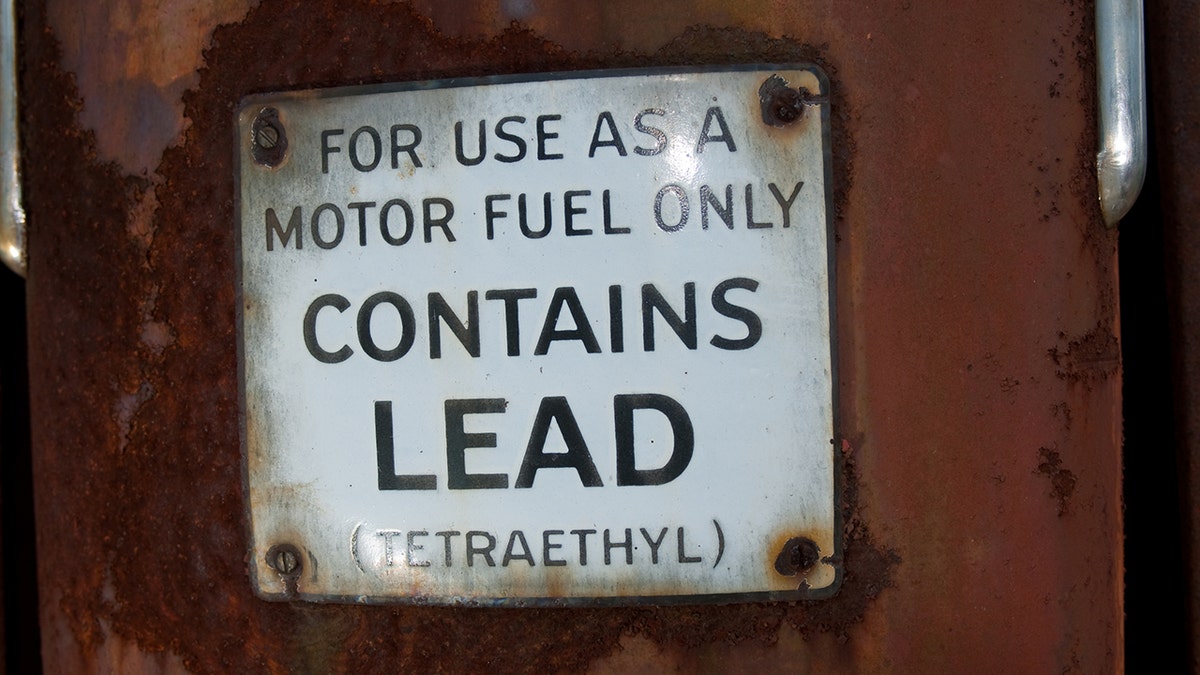Mental disorders among U.S. children linked to decades of lead exposure

A new study suggests that 20th-century lead exposure may have contributed to mental health problems in Americans.
Researchers at Duke University and Florida State University studied the effects of lead in gasoline, which was first added in 1923 to help keep car engines healthy. (Use was later banned on all U.S. vehicles in 1996.)
People born between the mid-1960s and mid-1970s are considered to have the highest exposure.
Experts say gratitude can make you happier and healthier
The findings show childhood exposure to leaded gasoline and automobile exhaust contributes to mental health imbalances in the United States, making “generations of Americans more depressed, anxious, inattentive, or hyperactive,” according to a Duke University news release.
The study, published in the Journal of Child Psychology and Psychiatry, attributes an estimated 151 million cases of mental illness over the past 75 years to lead exposure among U.S. children.
“The generation with the greatest lead exposure, Generation X (1965-1980), also had the greatest toll on mental health,” the researchers said. (iStock)
Americans born before 1966 “have significantly higher rates of mental health problems related to lead and may experience personality changes that reduce their success and resilience in life,” the researchers wrote.
‘There is no safe level’
Duke said lead is “neurotoxic” and can eat away at brain cells and alter brain function, so “there is no safe level of exposure at any stage of life.”
The researchers noted that while young children are particularly vulnerable to lead poisoning, “our brains are not equipped to prevent lead poisoning at any age.”
“Lead has a greater impact on our mental health than previously thought.”
Lead study author Dr. Aaron Reuben wrote in a statement that humans “are not adapted to the levels of lead we have been exposed to over the past century.”
“Once lead enters the body, we have few effective measures to deal with it, and many of us are exposed to levels that are 1,000 to 10,000 times higher than natural levels,” he added.

People born before 1966 had “concerning lead exposure throughout childhood,” the researchers said. (iStock)
“Clinically relevant”
Researchers analyzed historical data on children’s blood lead levels, lead gas use and U.S. demographics and determined that as of 2015, more than 170 million American children had “clinically concerning” levels of lead in their blood.
Lead exposure is associated with higher rates of mental illness such as depression and anxiety, but also more “mild distress that impairs quality of life.”
Ultra-processed foods make up 60% of Americans’ diets, and they are most at risk
“We’ve seen very significant changes in the mental health of Americans across generations, which means that if we never added lead to gasoline, we would experience less mental health problems,” co-author Matt Hall said in a statement. There will be many more people.
Research shows this can lead to lowered IQs, mental health problems and other long-term health complications, such as cardiovascular disease.

Experts say exposure to lead can harm brain development and health, especially in children. (iStock)
In an interview with Fox News Digital, Reuben reiterated that America’s mental health “can be severely affected by Americans’ exposure to lead over the past century.”
“Lead exposure may be reduced by improving mental health,” he said. “Lead has a greater impact on our mental health than previously thought.”
Human life expectancy unlikely to increase much, study suggests
While the researcher said he was not surprised by the harm caused by lead, he was surprised by the “severity” of its effects.
“We assumed that our ‘leading problem’ was solved in the 1970s and 1980s, but that was only the beginning of the solution,” he said.

“Lead has a greater impact on our mental health than previously thought,” one researcher told Fox News Digital. (iStock)
“Millions of Americans today were exposed to extremely high levels of lead as children. How did these exposures affect the trajectory of their lives? That’s one thing we want to answer.”
Reuben noted some limitations of the study, including that it included only two cohorts and did not examine exposure from other sources besides gasoline.
Click here to subscribe to our health newsletter
“Over time, we hope to conduct more lead mental health studies to refine our estimates based on better lead hazard curves,” he said. “Ideally, future studies should be able to incorporate water and Lead exposure in paint.”

“We are increasingly realizing that lead exposure from the past, even decades ago, affects our health today,” one researcher wrote in a statement. (Getty Images)
The expert urges the public to take lead exposure seriously and eliminate the hazard that still exists in some paints, fuels, batteries and other media.
“Millions of Americans today were exposed to extremely high levels of lead as children.”
The U.S. Environmental Protection Agency (EPA) issued a rule in October 2024 giving cities 10 years to replace any remaining lead pipes.
The agency also took action in January 2024 to reduce lead levels in residential soil across the country.
For more health articles, visit Fox News/Health
Child psychologist Dr. Michele Borba told Fox News Digital that the current youth mental health crisis in the United States is largely due to social media, but this study on lead exposure New research explores a “new frontier” behind worsening mental health.

Experts may be “ignoring” the long-term effects of lead exposure on the mental health of today’s adults, one expert says. (iStock)
“This is an unusual and fascinating cause that most of us are never prepared for or even think about – but it’s not just about children’s mental health and well-being,” she said.
Click here to get the Fox News app
“We may be overlooking other generations and the long-term effects of lead exposure.”
Borba commented that while more research is needed on this topic, she recommended that other mental health professionals consider lead exposure when treating patients.



